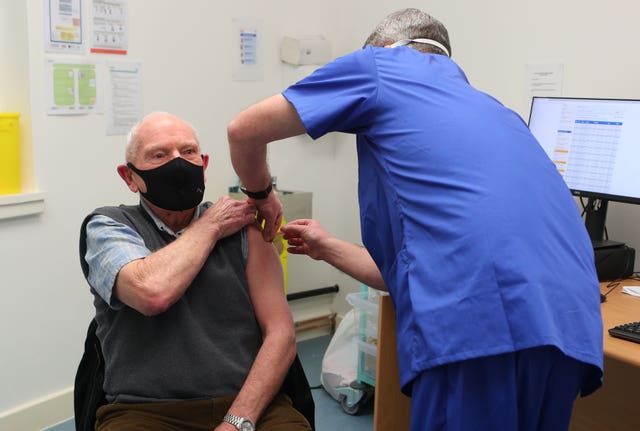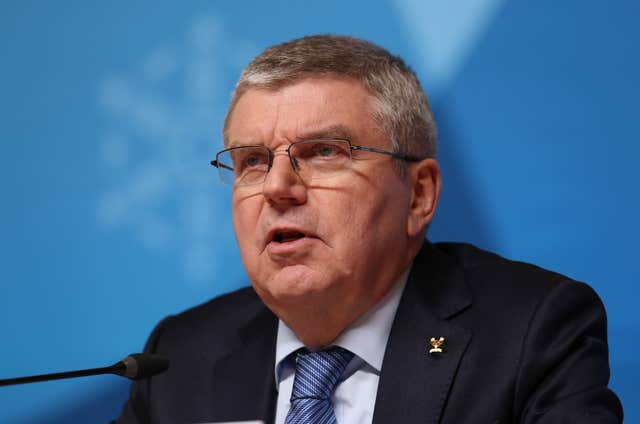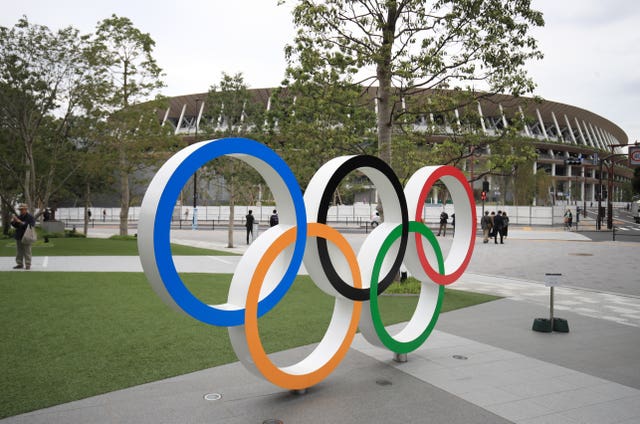
Top athletes should not jump the queue to get Covid-19 vaccinations so they can compete at the Olympics, the World Health Organisation (WHO) has suggested.
There are simply other people, such as frontline health workers and vulnerable people, who are dying and need the valuable vaccine more urgently, Dr Michael Ryan, the WHO’s executive director of the health emergencies programme, stated.
He told a WHO press conference in Geneva: “Right now we are laser-focused on solving our biggest problem which is vaccinating health workers in all countries and allowing people who are vulnerable and dying from this infection to access vaccine.”

He also said: “We face a crisis now on a global scale that requires frontline workers, those older people and those most vulnerable to access vaccines first – that does not in any way negate the desire or the will to have to the Olympics and come together and celebrate a global sporting event where all countries come together.
“What a wonderful symbol those Games are of shared humanity, however we have to face the realities of what we face now – there is not enough vaccine right now to even serve those who are most at risk.”
French National Olympic and Sports Committee (CNOSF) president Denis Masseglia has said that athletes who have not been vaccinated would face “extremely difficult” conditions at this summer’s Tokyo Games – which were postponed from last year.
He warned they would face “quarantine of a fortnight” and “will have to undergo tests in the mornings and evenings”.
There is mounting uncertainty over whether the already delayed Olympic and Paralympic Games will go ahead with coronavirus rates growing worldwide and much of the wider Tokyo region having been plunged into a state of emergency earlier this month.

Just days ago, International Olympic Committee president Thomas Bach said he believes the Tokyo 2020 Games will provide the “light at the end of the tunnel” amid the Covid-19 pandemic.
Mr Bach also insisted the event has the “full support” of Japanese officials after a report in The Times claimed the country’s government has “privately concluded” that the Olympics and Paralympics will have to be called off due to rising coronavirus rates.
Mr Bach’s remarks come with a growing number of figures, including the former London 2012 chief executive Sir Keith Mills, having expressed doubts over whether the Games will take place, while athletes are calling for clarity.
Japan is yet to begin vaccinating its citizens, although it hopes a majority of adults will have received a jab by July, and says vaccinations will not be compulsory for Games visitors.
Olympic officials have distanced themselves from suggestions by IOC executive committee member Dick Pound that athletes might jump the queue in order for the Games to proceed.
A mandatory scheme would face the problem of favouring those nations with established vaccine programmes over others which are unable to access such facilities and programmes.

An increasing number of athletes are going public with their concerns and calling for clarity from the IOC over if and how the Games will take place.
Britain’s four-time Olympic rowing champion Sir Matthew Pinsent has called for the Tokyo Games to be moved back to take the 2024 place in the calendar – an idea which has been dismissed out of hand by officials.
Double Paralympic silver medallist and former world champion Stef Reid insisted the continuing speculation is doing nothing to help athletes in their preparations for the Games.
She tweeted: “This is exhausting. If it is true, make it official.”


Comments: Our rules
We want our comments to be a lively and valuable part of our community - a place where readers can debate and engage with the most important local issues. The ability to comment on our stories is a privilege, not a right, however, and that privilege may be withdrawn if it is abused or misused.
Please report any comments that break our rules.
Read the rules here